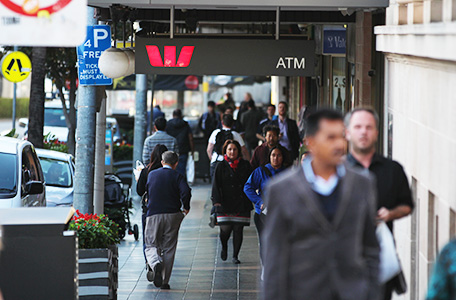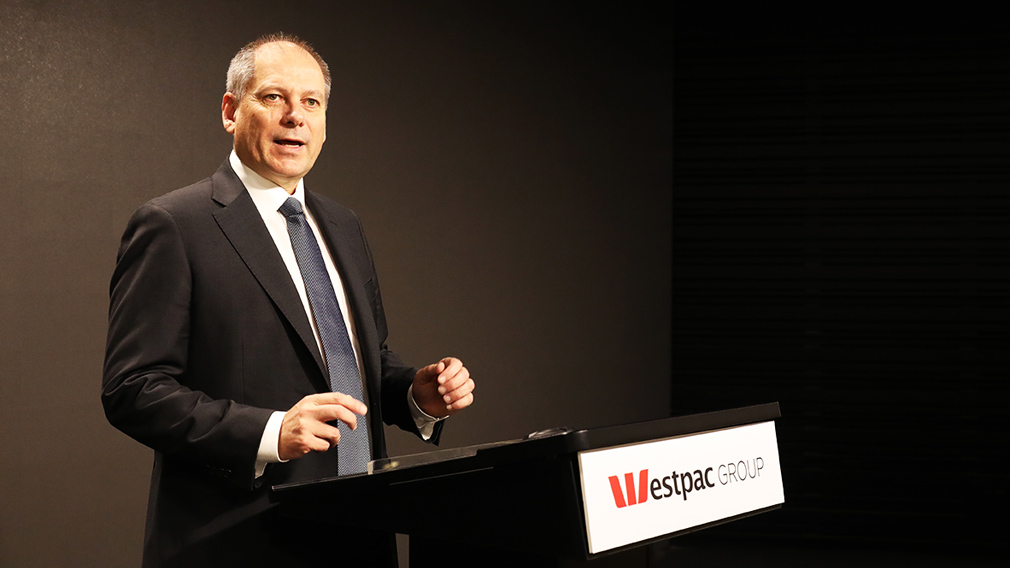Why we’re acting now despite unknowns

Heads of major global economic organisations meet at the Chancellery in Berlin, Germany last month. (Getty)
As the global economy becomes arguably riskier and more complex, it’s vital we don’t take Australia’s prosperity for granted.
The world is witnessing an emerging power struggle around who gets to write and enforce the global rules, as US politics cycles back towards isolationism, China’s economic influence accelerates with its Belt and Road initiative, Brexit shifts the dynamics of European trade, and Russia and various Middle Eastern nations seek to play more influential roles in regional economic development.
Meanwhile the stabilising roles played for more than half century by global organisations like The World Trade Organisation, The International Monetary Fund, The United Nations and The Basel Committee are all being challenged, and the threat of cascading trade wars looms large.
Fortunately, Australia is well positioned both politically and economically to deal with these dynamics.
And underlying this strong position has been our country’s vibrant, innovative and profitable business sector – of both small and large companies – which has contributed to our nation’s growing employment and tax base, and the services, protections and high standards of living we enjoy.
To maintain this success, Australia needs policies and regulation that encourage businesses and investors to take risks, to invest and to innovate.
And yet businesses are facing mounting undercurrents which have the potential to undermine, rather than support, success.
For example, layers of government regulation costs the economy around $94 billion each year – more than the Federal government spends on healthcare, transport and communications combined; and as a country, we sit at 14th place in the World Bank’s Ease of Doing Business Index.
Meanwhile, cuts to business and personal tax are being popularly painted as some kind of gift or handout rather than a driver of economic growth.
In contrast – and despite the political noise in the US – it’s important not to overlook the steps that have been taken to drive the positive sentiment and momentum there – whether it’s GDP growth, unemployment, inflation, capital spending, factory orders, wage growth, or the Fed tightening cycle. This has included cutting the corporate tax rate to 21 per cent, allowing 100 per cent expensing of equipment, and providing incentives for companies to repatriate earnings held offshore.
As one of the economic officials put it: “We want to reward success, not punish it… If you tax something less, you get more of it”.
Whether you agree with this approach or not, if there’s one thing we can learn from the US it’s that without a vibrant, innovative, and profitable business sector – of both small and large businesses – the services, protections, and high standard of living in Australia will simply not be sustainable.
And in a country like Australia where banks play a vital role in accessing foreign capital and lending to consumers and businesses, a strong banking sector is critical.
Australians rely on the major banks to help finance homes, cars, businesses, hospitals, roads and other critical infrastructure.
Westpac alone has a loan portfolio of more than $700 billion – the vast majority of which directly supports Australian households and businesses – and we raise around $160 billion of those funds offshore. Availability of these funds requires us to keep the confidence of global investors in our economy and our banking sector.
Australia’s economy is also supported by bank earnings through worker salaries, spending with local suppliers, dividends to investors, super fund returns, and taxes – indeed Westpac is Australia’s second biggest tax payer.

Westpac will implement the full recommendations for employees of the Sedgwick review two years earlier than required. (Emma Foster)
While supporting Australia’s economy is a role banks take seriously, at the same time, I acknowledge Australians’ high expectations of banks are being shaken by the stories coming out of the Royal Commission.
As CEO of Westpac, these stories are very confronting and many are just unacceptable. On behalf of all of us at Westpac, I apologise without reserve to any customer who has been let down by our mistakes.
I also know it’s not enough to say sorry. And that’s why we’re not waiting for the recommendations of the Royal Commission to address several of the themes that have arisen. We are listening, and we’re acting.
For example, today I’m announcing that Westpac will implement the full recommendations for employees, two years earlier than required, of the Sedgwick review, which looked into how banks remunerate customer-facing staff. This means that, from October, incentives for our consumer and business bank customer-facing employees will be further weighted towards great service and doing the right thing rather than product sales, adding to the steps we took two years ago to remove sales incentives for tellers.
We’re doing this because we know it’s important to reduce – if not eradicate – the perception that financial incentives for our people or third parties have been structured in a way that put the interests of the bank and its shareholders before those of customers.
This adds to a raft of other decisions we’ve taken in recent months – including improving the way we resolve customer complaints, particularly for the most vulnerable customers, starting with elevating responsibility for this function to a new group executive role; reducing complexity in our products, processes and systems which may have unintentionally led to errors; continuing to foster a culture where employees challenge decisions that don’t seem right, and know that if they breach the high standards set, it won’t be tolerated as outlined in a new Group consequence management framework.
While we haven’t got everything right at Westpac, we’re absolutely motivated to run our business in a way that’s fair to customers, fair to shareholders, and supports the growth of our economy through its inevitable ups and downs.
As Australia’s oldest company, we know the continued success of our business relies on the trust placed in us by customers, which cannot be taken for granted. That’s why we’re not waiting for change to be imposed on us as a result of the Royal Commission; we’re already taking action.
Because we also know that a strong and profitable banking sector is the backbone required for businesses and investors to take risks, invest and innovate, to maintain the ongoing prosperity that Australians enjoy as we track towards a riskier and more complex global economy.
This article is based on a speech delivered today by Brian Hartzer at the American Chamber of Commerce. Read the full speech (PDF 75KB).


